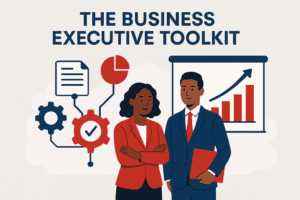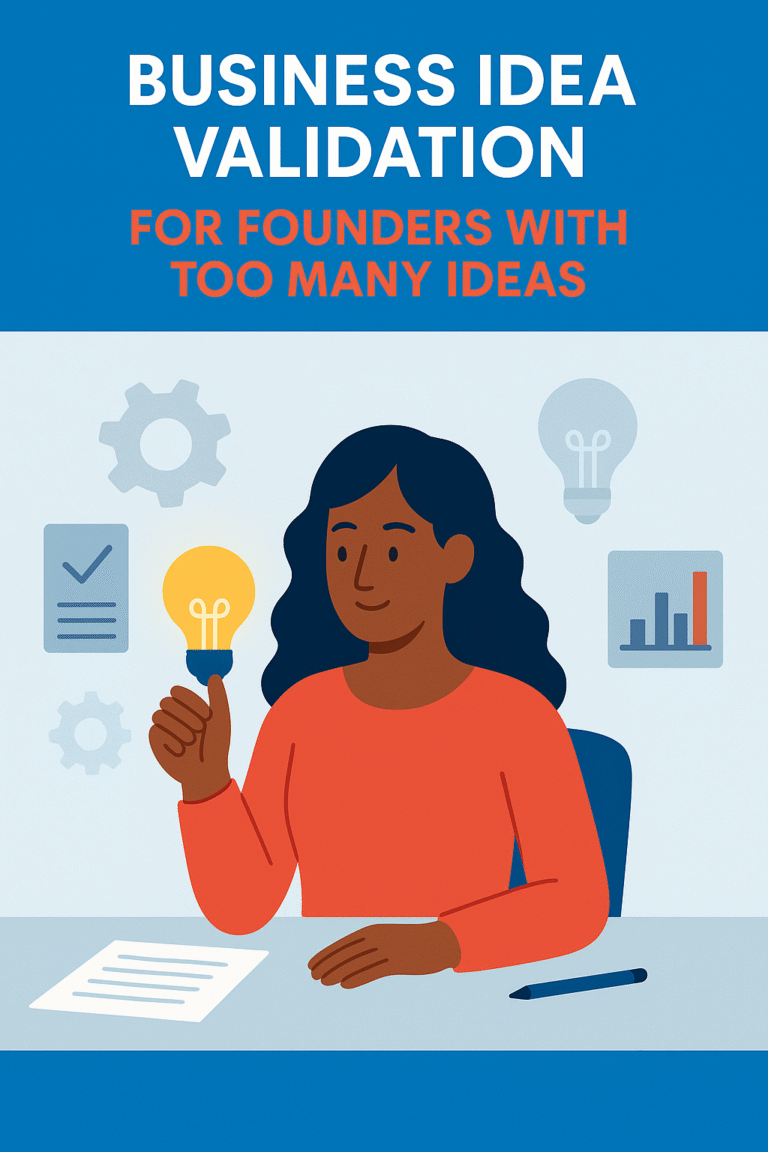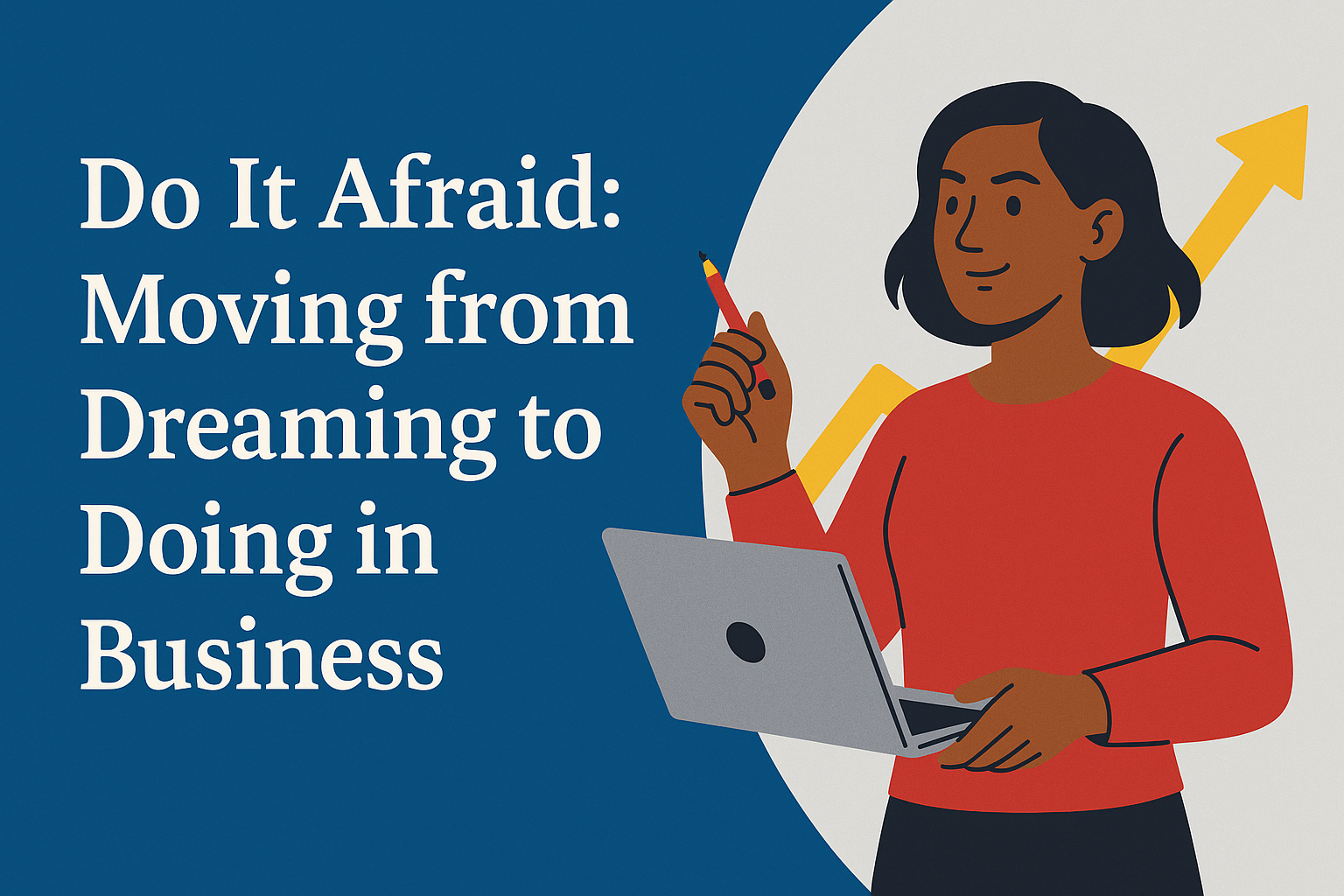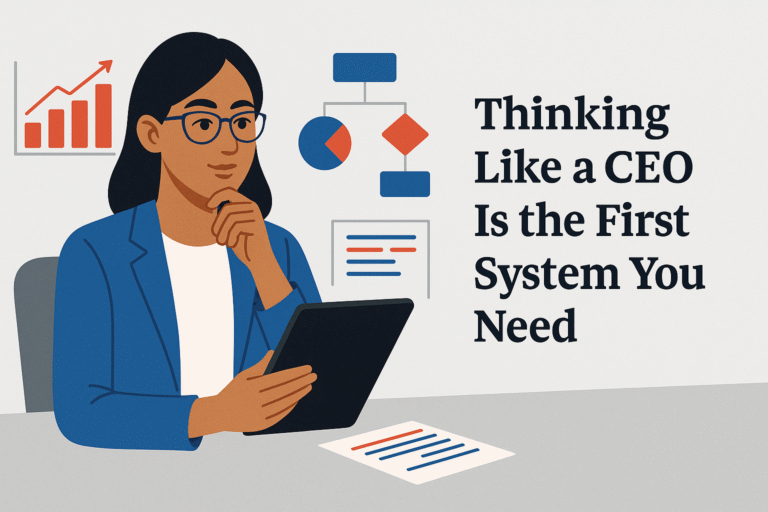CEO Mindset Monday

That never aligned with my vision. I wanted a business that ran on 10 hours a week—yes, 10 hours a week. I already had a full-time job, but even without that, I wasn’t looking to trade one full-time role for another. That decision didn’t make me any less committed. It made me clear on the kind of business I was building.
This post is a challenge to the copy-paste playbook—because the small business mindset isn’t one-size-fits-all. It’s not about finding someone else’s blueprint and forcing it to fit. It’s about building the mental flexibility to adapt, define your own standards, and make decisions that reflect your real goals—not someone else’s highlight reel.
The Small Business Mindset Isn’t One-Size-Fits-All
There’s a market for templates, swipe files, and “proven systems” because they’re comforting. It feels safer to
I’ve seen entrepreneurs try to replicate someone’s $100K launch formula and walk away with burnout and zero clarity. Or adopt a rigid productivity method that doesn’t account for chronic illness, caregiving responsibilities, or the need to keep a day job. These formulas weren’t made for your context. And the moment the market shifts—or the audience doesn’t respond the way the guru said they would? You’re left with confusion and self-doubt.
I actually tried this myself when I was first getting started. I fell into the trap of “use my proven system” and “just follow the process.” And at first, I believed it. But if a one-size-fits-all method truly worked for everyone, we wouldn’t have so many stories of people asking, why didn’t it work for me?
That illusion of safety—“just follow the steps”—is dangerous. Especially in outdated models that weren’t built for modern, agile, digital-first businesses. Your business needs to breathe and evolve, and that starts with rejecting the idea that there’s only one right way.
The truth is, even great systems only work when they’re filtered through your own priorities, strengths, and timing. They need to be adapted, not adopted wholesale. That’s where the small business mindset really begins—when you stop asking how to copy, and start asking how to customize.
Adaptability Over Imitation

Take marketing, for example. There are countless DIY strategies out there, and I gave several a shot—step-by-step email funnels, social media scripts, ad templates. But here’s what I found: just following a script doesn’t get you ahead. Why? Because so many others are following that same script. It saturates the market. It stops being a standout approach and becomes background noise.
The same goes for a lot of those other so-called “proven systems.” It’s proven because it worked for the person who created it—not necessarily because it will work for you or the thousands of others trying to mimic it. Systems like marketing—and business-building in general—require a creative edge to stand out. Most of these systems only teach you how to blend in. They walk you through the basics, but they rarely empower you to go beyond them.
That’s why even the best systems require adaptability to get you where you want to go. And if adapting those systems feels like a stretch? That’s okay too. I’ll be honest—marketing isn’t my strong point. That’s why adapting someone else’s marketing system never worked for me. But learning the basics helped me hire and collaborate more effectively. I can evaluate results, give feedback, and steer the vision—without having to execute every piece myself.
That’s what I want for you. Learn enough to adapt. And be adaptable enough to seek support when needed. That’s the small business mindset in action: flexible, discerning, and aligned with your strengths.
As Forbes emphasized in their 2023 article “15 Ways To Build Adaptability As An Entrepreneur,” adaptability isn’t just useful—it’s essential for long-term success. Entrepreneurs who thrive are the ones who embrace change, learn from feedback, and pivot when necessary. They’re not stuck on doing things the way they’ve always been done. Instead, they build the skill of shifting with purpose, not panic. That’s what sets them apart when the market shifts or plans fall through. Adaptability becomes the strategy, not just the backup plan.
Standards Still Matter—Even Without a Formula
Let me be clear: rejecting one-size-fits-all doesn’t mean running your business without structure. The small
Financial Freedom: My business isn’t just about making money—it’s about creating a sustainable path to independence. That means prioritizing profit, not just revenue, and being intentional about how I spend my time and energy.
Scalability: I don’t build systems that depend on me doing everything myself. Whether it’s automation, delegation, or product design, I create with growth in mind—so the business can keep working even when I step away.
Efficiency: I value smart systems over brute force. I’m always looking for ways to simplify, automate, or eliminate tasks that don’t drive real results. If it’s not making an impact, it’s not worth my time.
Integrity: I don’t cut corners to get ahead. Transparency and honesty guide how I price, how I market, and how I serve. That means delivering on promises and telling the truth—even when it’s uncomfortable.
Resilience: Business will test you. I don’t crumble when things don’t go as planned. I adjust, I reassess, and I find a way forward—whether that means pivoting, pausing, or taking a smarter route around the obstacle. It’s about continuing on with intention.
These aren’t just buzzwords—they’re anchors. They shape how I build, how I serve, and how I decide what’s worth my energy. And they keep me steady when I’m tempted to chase what’s popular instead of what’s right.
But this isn’t about copying my list. It’s about defining your own. Your values are the foundation. Your mindset is how you put those values into practice. So ask yourself: What matters most? What are you building toward? And what kind of business—and life—are you really trying to create?
The small business mindset doesn’t start with strategy. It starts with clarity. And that clarity comes from you.
Mindsets That Matter for Startup Founders
Alongside values, I believe there are core mindset shifts every startup founder must make—shifts that separate those who stay stuck from those who grow:
You’re here to lead
Your responsibility is to guide your business forward. It’s about direction, clarity, and follow-through. You are the driver of your business. You decide where it goes.Take responsibility
You can’t build a business by crowdsourcing your confidence. You have to act—even when the answers aren’t obvious… and own the consequences for better or worse.Progress matters more than perfection.
Nothing is ever perfect. Growth happens through iteration, not overthinking. The key is knowing when to refine and when to move.Flexibility is a strength.
Businesses that adapt are businesses that last. If you’re stuck in “this is how we’ve always done it,” you’re already behind. Innovation favors those who shift when it’s time.
These mindset shifts are at the heart of a strong small business mindset. They aren’t always easy, but they’re necessary if you want to build something that lasts.
Building Mental Flexibility Without Chaos
Mental flexibility doesn’t mean winging it. It means having the structure in place to adjust without unraveling. For me, that’s not just a mindset—it’s a habit. It’s how I stay grounded when things shift, and how I avoid unnecessary emergencies in the first place.

I’m a planner by nature. Not just for the long-term, but day-to-day. That’s why I rely on tools like the Power Planner from the Business Executive Toolkit. It helps me map out my week, anchor into what matters most, and prepare for the next day—before I get caught up in the noise. It keeps me focused on what I’ve actually committed to doing today, instead of reacting to whatever feels urgent.
And when it comes to systems, my standard operating procedures (SOPs) are non-negotiable. They’re not just for delegation—they’re for resilience. I use SOPs to define roles, outline processes, and reduce the chaos of turnover. Because yes, turnover happens. In every business. And when it does, I don’t want to waste energy repeating myself or putting out fires.
I’ve kept that same mindset even in my day job. When I take a vacation, I wrap things up beforehand. I don’t want people hunting me down or saying things fell apart while I was gone. When I return, I want to walk into clarity—not a mess.
That’s what real flexibility looks like: structure that supports you, not restricts you. It’s not about controlling everything—it’s about preparing well enough that you can adapt with intention.
Final Thoughts: Your Mindset Is the Business
If you take nothing else from this post, let it be this: the small business mindset isn’t something you download. It’s something you develop. It’s a daily practice. It expands as you do.
You don’t need to be a clone to be credible. You don’t have to grind 60 hours a week to prove you’re serious. What you do need is clarity—about what you’re building, why it matters, and how you’re going to do it on your terms. And you need the willingness to adapt without losing yourself along the way.
Because in the end, your business reflects your mindset. And that’s not about perfection—it’s about alignment.
Reflection Prompt:
Where are you still copying… when you could be adapting with intention?






